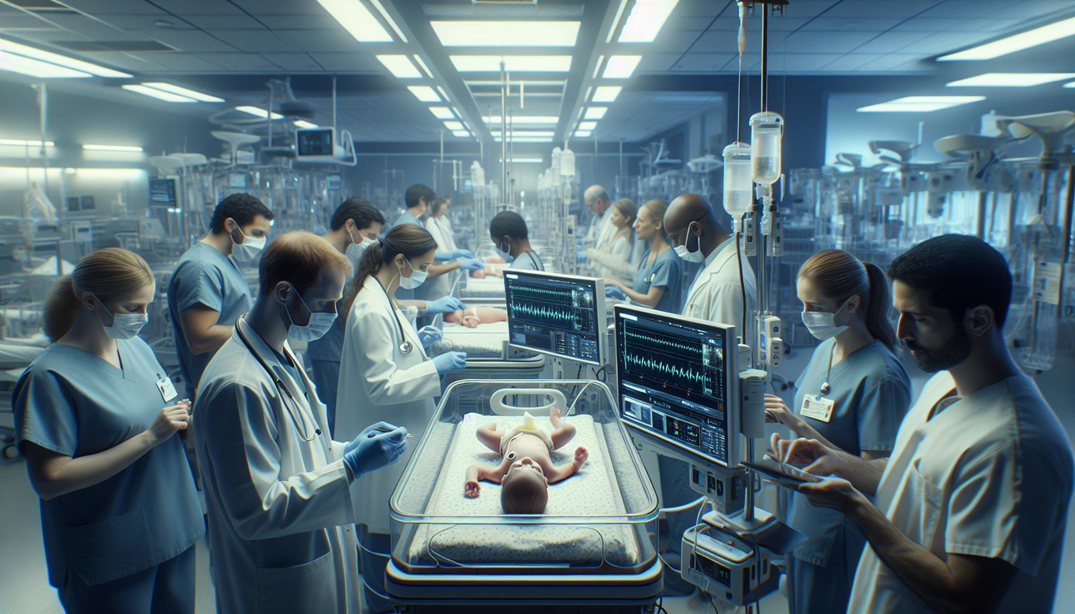Introduction to AI in Neonatal Care
A groundbreaking collaboration among clinicians, scientists, and engineers at Mount Sinai has led to the development of a deep learning pose-recognition algorithm designed to monitor infants in the Neonatal Intensive Care Unit (NICU). This innovative tool leverages video feeds to accurately track infant movements and identify crucial neurologic metrics, marking a significant advancement in neonatal care. The findings, recently published in Lancet’s eClinicalMedicine, highlight the potential for a minimally invasive, scalable method for continuous neurologic monitoring in NICUs.
Every year, over 300,000 newborns are admitted to NICUs across the United States. The neurologic status of these infants is critical, as deterioration can occur unexpectedly with devastating consequences. Traditionally, neurologic assessments have been intermittent and imprecise, relying heavily on physical exams that may overlook subtle changes. This new AI-based tool promises to provide continuous, real-time insights into infant health, offering a level of precision and immediacy that has not been possible before.
Technical Insights and Implications
The deep learning algorithm developed by the team at Mount Sinai is a prime example of computer vision technology applied to healthcare. Computer vision involves methods for acquiring, processing, analyzing, and understanding digital images to extract meaningful data. In the context of the NICU, this technology enables the transformation of visual data from video feeds into actionable insights regarding an infant’s neurologic status.
By utilizing pose-recognition capabilities, the algorithm can detect and interpret subtle movements that may indicate neurologic distress. This continuous monitoring is akin to cardiorespiratory telemetry, which tracks heart and lung function, but until now, neurotelemetry has remained elusive. The integration of this AI tool in NICUs could revolutionize the way neurologic health is monitored, providing a non-invasive, scalable solution that enhances the standard of care for vulnerable newborns.
Potential Impact and Future Directions
The introduction of AI-driven neurologic monitoring in NICUs represents a significant leap forward in neonatal healthcare. By providing continuous, real-time data, this technology can help clinicians detect and respond to neurologic changes more promptly, potentially improving outcomes for infants at risk of neurologic deterioration. This capability is particularly crucial given the current limitations of traditional neurologic assessments.
Looking ahead, the adoption of this AI tool could pave the way for broader applications in pediatric and adult care settings, where continuous neurologic monitoring could similarly enhance patient outcomes. As the technology evolves, further research and development will be essential to refine the algorithm and expand its capabilities, ensuring it meets the diverse needs of patients across different healthcare environments.
Summary
- Mount Sinai developed an AI-based tool for continuous neurologic monitoring in NICUs.
- The tool uses deep learning and pose-recognition to track infant movements and neurologic metrics.
- It offers a minimally invasive, scalable solution for real-time insights into infant health.
- This technology could revolutionize neonatal care by providing more precise and immediate neurologic assessments.
- Future developments may expand its application to other healthcare settings, enhancing patient outcomes across the board.
